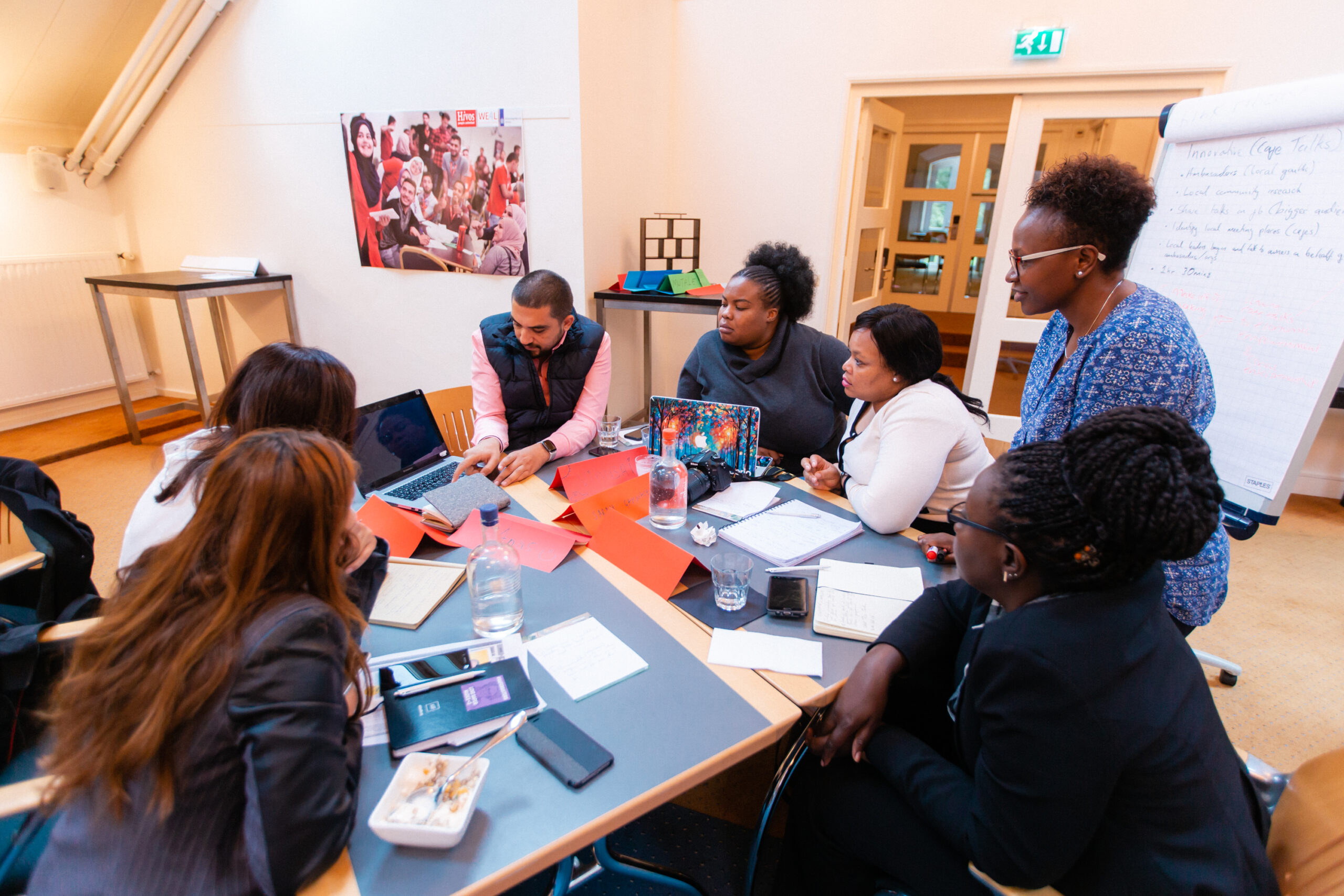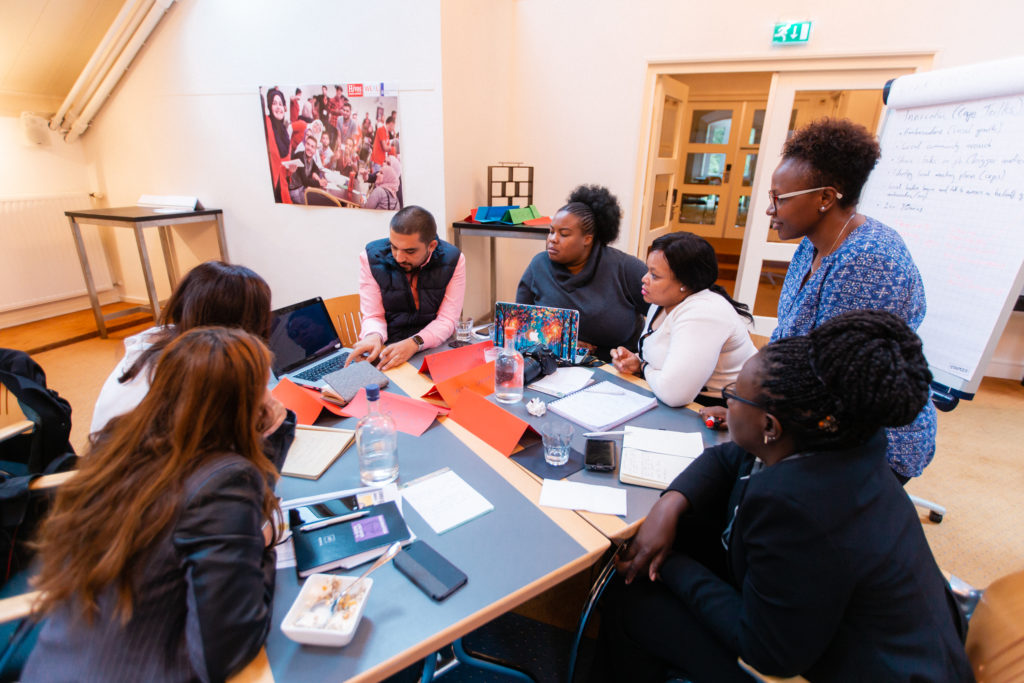id=”415″ id=”post-1050″ class=”wp-post-content-block ” itemscope itemtype=”http://schema.org/BlogPosting” itemprop=”blogPost”>
Linking and Learning: What partners from Southern Africa can teach
By Laudy Issa
Southern African partners of the Women Empowered For Leadership (WE4L) program discussed the achievements and challenges of their work at the WE4L Linking and Learning event hosted on October 1 and 2.
The representatives from the Southern African partner organisations shared their experiences in their respective communities, highlighting the concrete changes that WE4L has fostered to support female participation in decision-making processes in Malawi, Zambia, and Zimbabwe.
Irene Ntonga from the Women’s Legal Resources Center (WORLEC) highlighted the success of WE4L in Malawi in engaging in community structures and in working on sensitising citizens about gender and the benefits of having women in leadership positions. The project officer from WOLREC, which focuses on facilitating the access to legal, socio-political, and economic justice for women, highlighted that confidence levels in women leaders have risen. She also shared that the number of female councillors in local governance has increased and most had been trained under the WE4L program.
The WE4L Malawi partner has also managed to engage 10 media houses, from radio and television stations to online and print outlets, in its work. While engaging political parties has been a success for WE4L in Malawi, Ntonga highlighted the difficulty in ensuring they implement the women’s quota that was agreed upon with them.
“We’ve seen that none of those parties are actually implementing this women’s quota,” said Ntonga.
Sally Ncube from the Women’s Coalition of Zimbabwe (WCoZ), a network of over 70 women’s organisations in the country, discussed their digital storytelling projects to bring women’s issues to light. The WE4L partner documents the journeys of women, the barriers and challenges they face, how they use information from WE4L projects, and the strategies they use to sustain themselves in attempts at profiling women, calling to action, and raising awareness among other reasons.
“We use the storytelling technique to inform, to educate, to mobilise, to recruit, to stimulate activism, to celebrate, and to also bring to attention issues that we will be advocating for.”
Ncube also highlighted the difficulties faced in WCoZ’s efforts at combating gender-based violence. High level women in decision-making processes are uncomfortable going to the police or shelters, for fear of being shut out. They fear the repercussions these actions might have on public perception. When encouraged to report, women would often backtrack.
Project Coordinator Faggy Chibanga from the Zambia National Women’s Lobby (ZNWL) shared how her organisation promotes the representation of women, highlighting the breakthroughs that women in governance and in other areas of decision-making have witnessed this year. For the second time since 1964, the Zambian government appointed a female minister of finance, a high ranking governmental post.
While no quota requiring the political representation of women exists on a national level, ZNWL is approaching the strongholds of political parties to advocate quota systems within their organisational structures. Five of the eight approached political parties are currently drafting general political plans to include quotas in their political parties.





